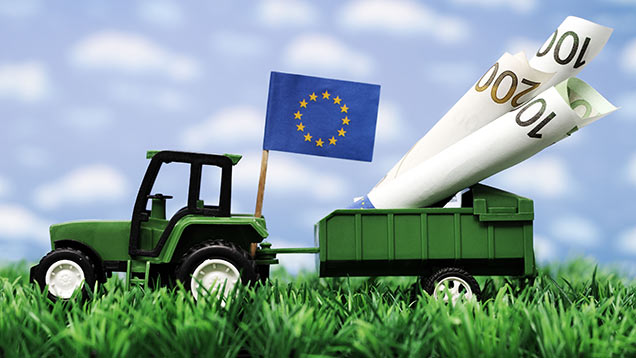At a glance: How the EU farm support package will be split up
 ©Action Press/Rex Shutterstock
©Action Press/Rex Shutterstock Following a day of action (7 September), which saw thousands of farmers from across the EU clash with riot police on the streets of Brussels, the European Commission has unveiled what it described as a “comprehensive package of measures”.
The €500m (£363m) support package is divided into three sections – measures to help short-term cashflow difficulties, measures to address market imbalances and measures to address challenges in the supply chain.
See also: Support package is disappointing, say industry leaders
Key points are as follows:
Measures to address cash flow difficulties
- Brussels is preparing draft legislation that would allow member states to pay up to 70% of their direct payment envelope from 16 October “provided that the necessary controls have been carried out”. As yet, it is unclear whether these controls will be relaxed and if so by how much.
- Member states are already allowed to pay farmers 75% of rural development payments for agri-environment, organic farming upland and animal welfare schemes from 16 October. The commission is now proposing to increase this rate to 85%.
To address market imbalances
- The commission says it is working on an enhanced scheme for skimmed milk powder (SMP) focusing on higher aid levels as well as ways to ensure it is more effective. Brussels says it is also ready to table a proposal to open a new Private Storage Aid (PSA) scheme for pigmeat.
- The Commission says it will increase the promotion budget for 2016 in addition to the €81m (£59m) it has already committed. It says a specific part of that enlarged budget will be reserved for the dairy and pigmeat sectors.
To address supply chain challenges
- The commission will set up a dedicated High Level Group, which will focus on ways of developing specific measures including credit for farmers, and financial and risk-hedging instruments such as futures markets.
- The commission says aims to share ways of tackling unfair trading practices – taking the UK’s groceries code of conduct as an example of best practice. It will also examine financial and risk-hedging instruments, such as forward contracts.
See more
